|
ARTISTIC STATEMENT I compose as a contribution to community. My aim is to bring people together through music. I work hard to communicate as directly as possible with listeners. I want to move people emotionally through the sound structures I create. My hope is that by telling a musical story, my work will strike a responsive chord in listeners who approach art with an open and attentive mind and heart. I also view helping others to compose as part of my mission. I am passionate in my belief that anyone who wants to create music can do so and I've spent many years seeing the truth of that statement borne out with students of all ages. Composer Erik Nielsen has created works for chorus, orchestra, wind ensemble, solo instruments, chamber music, works for dance, film and electronic music. His pieces have been performed all over the world by ensembles including A Far Cry, the Amabile, Chiara, Emerson and Ying String Quartets; the National Symphony Orchestra; the Killington and Manchester Chamber Players; Bread and Puppet Theater; the Vermont Contemporary Music Ensemble; Vermont Opera Theater, Vermont Symphony; Vermont Youth Orchestra and Village and Northern Harmony. He has won awards from ASCAP, the Vermont Arts Council, and the Vermont Music Teachers Association. In September 2015, his opera, A Fleeting Animal, a collaboration with poet/playwright David Budbill that premiered in 2000, was performed in a newly revised edition to great acclaim in six locations in Vermont. Above - the cast of "A Fleeting Animal" takes a bow Recent commissions include a film score for the 2019 Green Mountain Film Festival (premiered March 23, 2019 by the Montpelier Chamber Orchestra and funded in part by a Creation Grant from the Vermont Arts Council); a new work for chorus and brass or organ, All This Night Shrill Chanticleer, a commission from the Vermont professional chorus Counterpoint, premiered in December, 2018; a new work for the Northern Third Quartet, premiered in October, 2018 (funded in part by a grant from the Vermont Community Foundation); A Voice in the Night, a four-movement work for bassoon and piano (funded in part by a grant from the Vermont Arts Council); Fanfare in B Flat, commissioned by the Vermont Symphony for their 80th anniversary; and Glimpses of Azure, commissioned by the Boston string orchestra, A Far Cry. The Falling of Trees Above is a complete performance of Erik's 2007 composition for piano quartet and baritone with poems by Erik's late brother, Lars Nielsen. The piece was originally created as a tribute to older brother, Karl Nielsen, who died in 1998 of brain cancer. This performance, by the Northern Third Quartet and baritone Thomas Beard, took place May 26, 2019 at the Unitarian Church in Montpelier, Vermont at a special event honoring Lars' work as a writer. And a special thank-you goes to Dennis Bathory-Kitsz, for his wonderful work as videographer! Mr. Nielsen is Senior Composition Mentor with Music-COMP (formerly the Vermont MIDI Project). He also teaches music theory and composition with the Green Mountain Suzuki Institute, the Monteverdi School and privately, as well as music appreciation classes at the Montpelier Senior Activity Center. He was elected a Fellow by the Vermont Academy of Arts and Sciences in 2016. Mr. Nielsen lives in Brookfield, Vermont. A Psalm for a New Year Above: a composition for SATB chorus and solo viola, with words by Erik's late brother, Lars Nielsen. The text is the final work he wrote before becoming ill from brain cancer in September, 2017. Erik wrote the music just after Lars died in June, 2018. This is the premiere performance, featuring the chamber chorus Les Voix de Mai, directed by Jessica Pierpont, with Elizabeth Reid playing viola. It took place at a special event honoring Lars' writing at the Unitarian Church in Montpelier, Vermont on May 26, 2019. And a special thank-you again to Dennis Bathory-Kitsz. Prince Achmed This is a performance by the Montpelier Chamber Orchestra of my score to the final two acts of Lotte Reiniger's 1926 silent film classic, "The Adventures of Prince Achmed". The performance took place as part of the concert "New Music at the Movies" that took place on Saturday, March 23, 2019 at the Vermont College of Fine Arts in Montpelier, Vermont. Anne Decker, the Music Director of the Montpelier Chamber Orchestra, conducted. The project was a collaboration among the Montpelier Chamber Orchestra, the Green Mountain Film Festival and Music-COMP (an online music composition resource for students). Erik Nielsen teaches composition at Monteverdi Music School and is actively teaching composition lessons and music theory during the COVID pandemic. You'll find more information about Erik at https://www.eriknielsenmusic.com/.
3 Comments
Ten Thousand Hours
My parents took me to Bill when I was nine, after I had played for a year in the Theodore Judah Elementary School band class. Bill was a magician on the instrument. His good friend (and partner in a Mexican tequila venture) was Raphael Mendez the world-acclaimed trumpet virtuoso. He and Raphael would challenge each other to see who could play an excerpt faster. In my lessons with Bill it could be said that he blew me away, literally, with his trumpet virtuosity. Week after week he sat next to me and showed me precisely how to achieve my own virtuosity in the general areas of technique, musicality, and intonation. And he repeatedly told me in no uncertain terms that I would have to practice a lot to gain mastery.
The volume would undergo a steady slow decrescendo until our tones would disappear into the realm of shadow tone. During “Longtones” I was required to produce the exact same pitch as Bill’s, I mean the EXACT frequency of Bill’s tone, so that the two tones sounded precisely like one trumpet was in the room. I learned that precise intonation required a matching of tonal timbre, volume and pitch. Years later, when I was put to the test as Second Chair Trumpet in the National Symphony, the intonation refinements Bill taught resulted in the only compliment that I ever heard Principal Chair Trumpet Lloyd Geisler utter: “Ron has never played an out-of- tune note”. Lloyd and I played over 700 concerts together. After “Longtones” came “Schlossberg Slurs”, exercises in which the overtones (think bugle calls) of the instrument are connected without any break. There are three ways by which to execute bugle calls on a trumpet. They are to change embouchure (lip) aperture size, air speed and/or lip tension. If slurs are executed correctly the tonal changes are lightning fast and both tones have the same timbre. Bill was a master. All I had to do was listen carefully as he demonstrated. There was no rush. I listened to Bill for seven years. I found out later that Max Schlossberg was the teacher of my Juilliard teacher Bill Vacchiano, and was responsible for Vacchiano being hired into the New York Philharmonic. Unknown to me at the time, Bill’s
musicianship. Bill’s musical heritage came from the concert band and cornet solo traditions. He polished my technique using cornet solos and cornet method books. I had to wait for Juilliard training to learn orchestral style and tonal concept. In addition to weekly trumpet lessons, Bill Peron brought me into the Sacramento Symphony when I was 14, to perform beside him. On our first concert we performed Tchaikovsky’s Romeo and Juliet Overture and Debussy’s Fetes. The precision and emotional richness of the music were overwhelming. I was hooked. During my trumpet lessons with Bill Peron time both stood still and disappeared in a flash. The doorbell announcing Bill’s next student came way too soon. At my first Juilliard lesson, Vacchiano asked me who had taught me to play. He didn’t know of Bill Peron. He simply said: ”He did a good job.” Seven hours each summer day, in the sweltering Sacramento heat, with the puddle of sweat under my chair, and the pendulum of the metronome swinging faster and faster, I inched forward. A small price to pay for social and self identities, both enhanced by fun musical friendships, a string of first chair successes, and virtuoso solo performances in both concert bands and jazz bands. And all being enabled by a profound connection to and passion for music performance, specifically trumpet performance. And then there was the Toscanini NBC Symphony recording of Respighi’s Pines of Rome. Little did I know as a 15 year old teary-eyed kid listening to my Motorola, that in two years I would be learning trumpet artistry from two members of Toscanini’s New York Philharmonic trumpet section, William Vacchiano and Nathan Preger. And in four years I would be performing that same music of Tchaikovsky, Debussy, and Respighi as Second Chair Trumpet in Constitution Hall with the National Symphony of Washington, D.C. Ron Thompson teaches trumpet lessons at Monteverdi Music School. During the pandemic, he is actively teaching online during the pandemic. Ron is also a practicing psychologist specializing in performance anxiety. His book, On Cue: Managing Anxiety, Inviting Excellence is published by Ron at Masterful Life Performance Press. You can read his bio here. And please do click the audio file near the top of the page, below the photo, for a lovely audio recording of Ron performing the Posthorn Solo from Third Symphony by Gustav Mahler.
|
AuthorMonteverdi Music School has been a center for music lessons and music activity in Central Vermont for 26 years, and now establishing its outreach to the online community! Archives
October 2022
Categories |


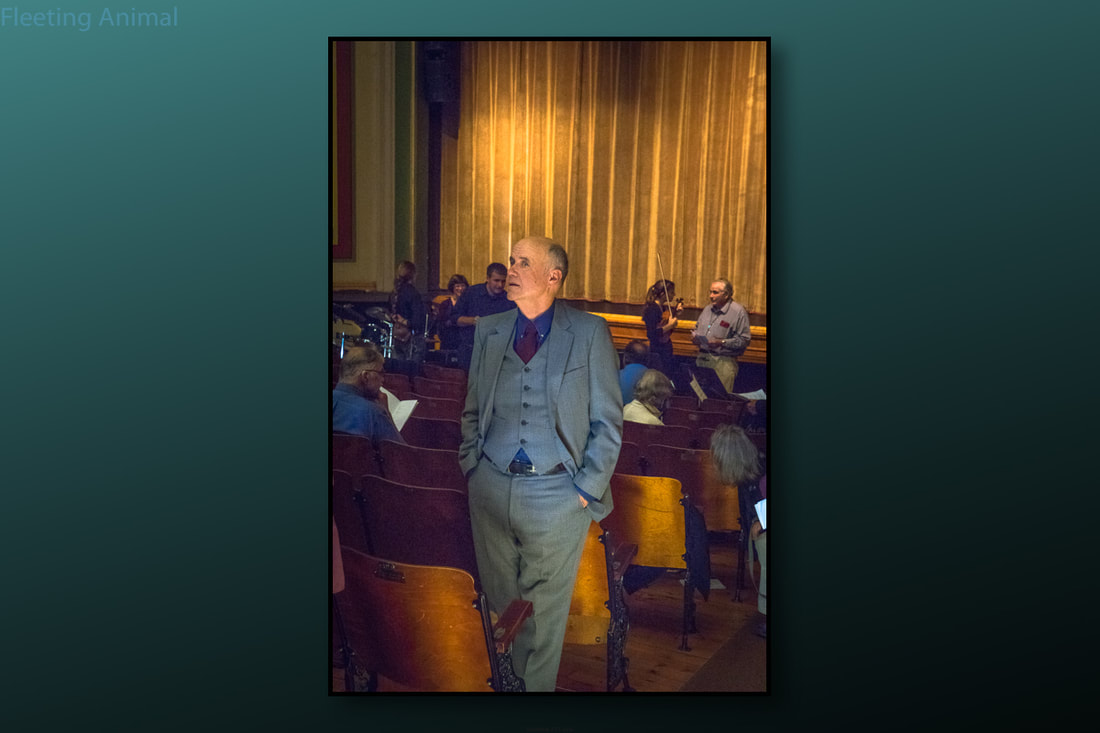
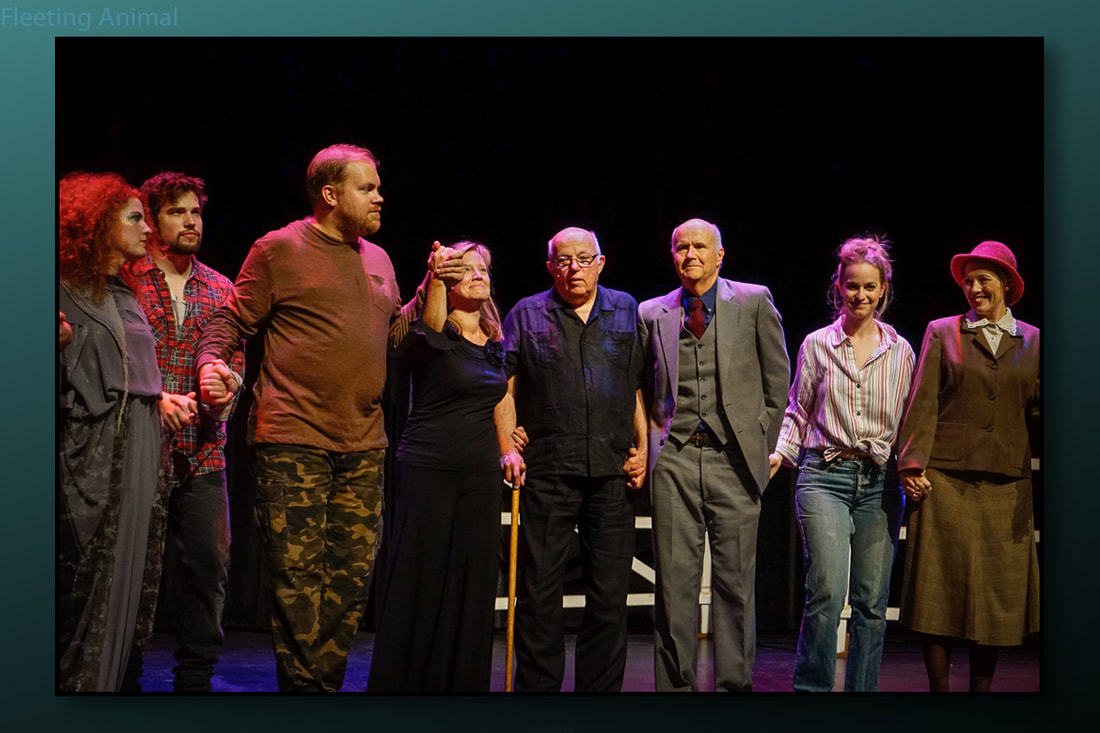
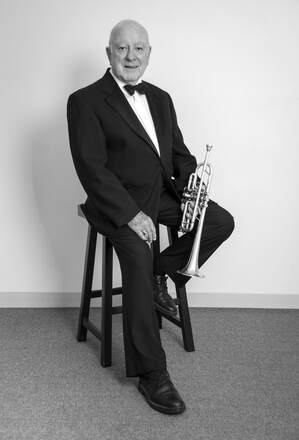
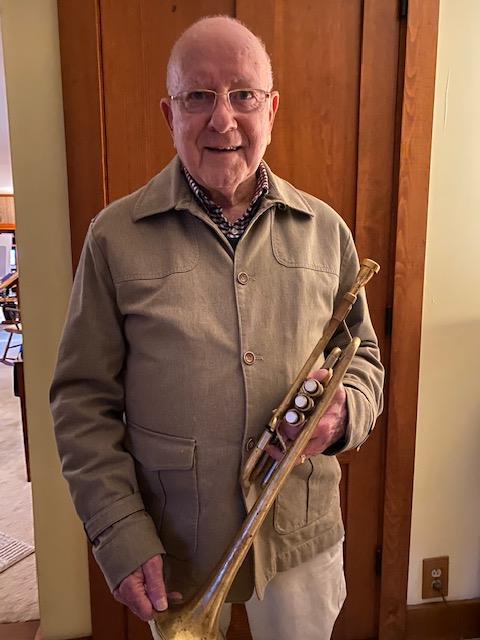
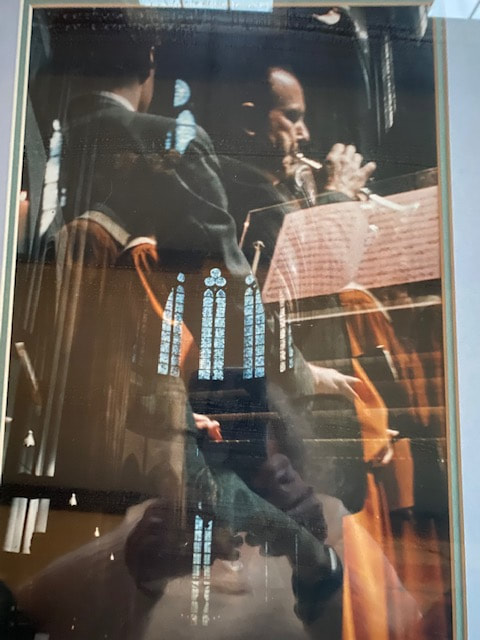
 RSS Feed
RSS Feed

